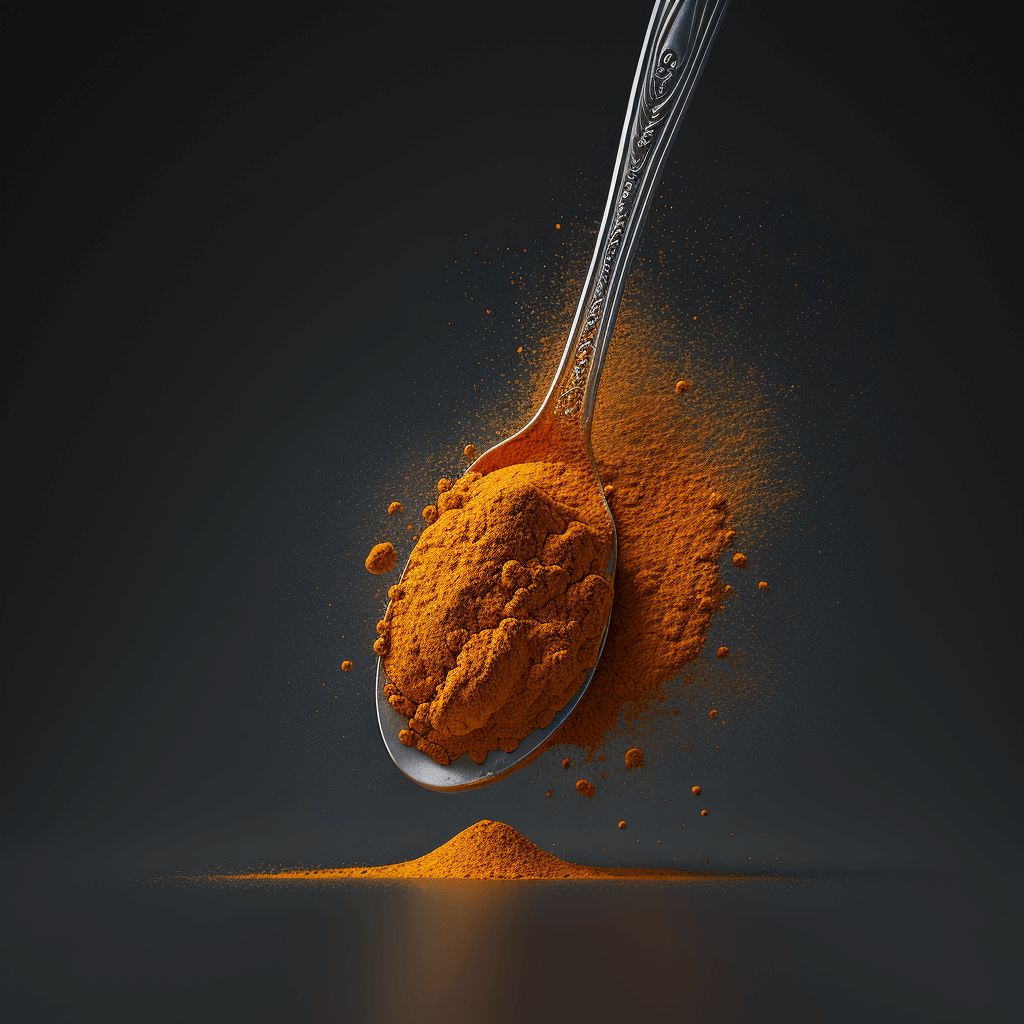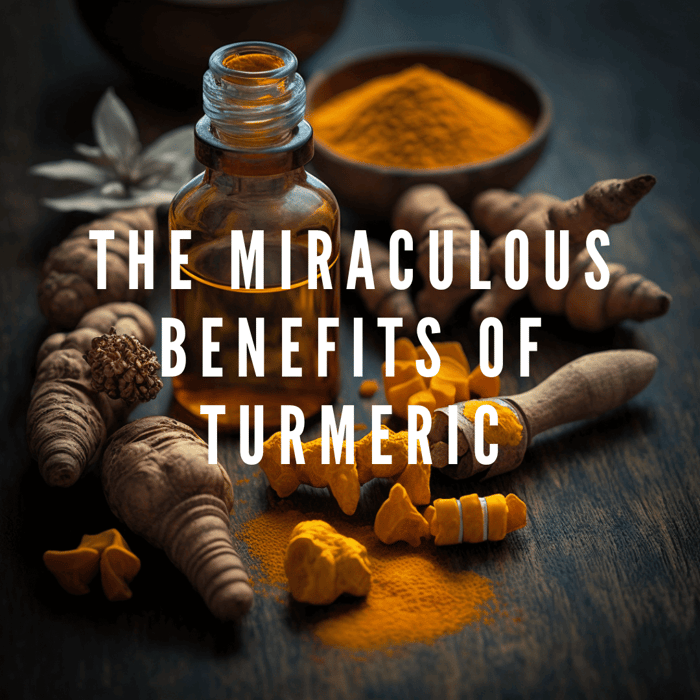Table of Contents
- Introduction
- History and Origins of Turmeric
- Active Compounds in Turmeric
- Health Benefits of Turmeric
- Anti-Inflammatory Properties
- Antioxidant Effects
- Improved Brain Function
- Heart Health
- Cancer Prevention
- Depression and Anxiety
- Arthritis Management
- Digestive Health
- How to Use Turmeric
- Precautions and Side Effects
- Conclusion
- FAQs
Introduction
Have you ever wondered what gives curry its vibrant yellow color? The answer is turmeric, a spice that has been used for thousands of years, not only for its flavor but also for its numerous health benefits. In this article, we'll dive deep into the world of turmeric and explore its history, active compounds, and the many health benefits it offers. So, let's get started!
History and Origins of Turmeric
Turmeric, scientifically known as Curcuma longa, has its roots in Southeast Asia and has been used for over 4,000 years. It was initially used as a dye and later became an essential ingredient in Ayurvedic medicine, a traditional Indian system of healing. Today, turmeric is a popular spice worldwide and is increasingly being recognized for its potential health benefits.
Active Compounds in Turmeric
What makes turmeric so unique? The secret lies in its active compounds, the most prominent of which is curcumin.
Curcumin
Curcumin is the primary active compound in turmeric, responsible for its bright yellow color and many of its health benefits. It's a powerful antioxidant and has strong anti-inflammatory properties. However, it's important to note that the curcumin content in turmeric is relatively low, so you might need to take supplements to fully enjoy its benefits.
Health Benefits of Turmeric
Now that we know what's inside turmeric, let's explore its potential health benefits in more detail.
Anti-Inflammatory Properties
Inflammation is a natural response of the body to fight infections and heal injuries. However, chronic inflammation can be harmful and is linked to various health problems, such as heart disease, cancer, and Alzheimer's. Curcumin, the active compound in turmeric, has potent anti-inflammatory effects that can help reduce chronic inflammation and promote overall health.
Antioxidant Effects
Antioxidants play a crucial role in neutralizing harmful free radicals, which can cause oxidative stress and damage our cells. Curcumin is a powerful antioxidant that can neutralize free radicals and even stimulate the body's antioxidant defenses. This dual action makes turmeric an excellent choice for protecting your body from oxidative stress and its associated health problems.
Improved Brain Function
Did you know that turmeric can even help improve your brain function? Curcumin has been found to increase the levels of brain-derived neurotrophic factor (BDNF), a protein that plays a vital role in the growth, development, and maintenance of neurons. Low BDNF levels are associated with various neurological disorders, such as depression and Alzheimer's. By increasing BDNF levels, turmeric may help delay age-related cognitive decline and improve overall brain health.
Heart Health
Heart disease is a leading cause of death worldwide, and turmeric may help reduce the risk factors associated with it. Curcumin's anti-inflammatory and antioxidant properties can help protect the heart from damage caused by inflammation and oxidative stress. Additionally, studies have shown that curcumin can improve endothelial function, which is crucial for maintaining blood pressure and preventing blood clot formation. By promoting heart health in multiple ways, turmeric may contribute to a reduced risk of heart disease.
Cancer Prevention
Cancer is a complex disease with multiple causes, and while no single food can prevent it, some compounds in turmeric may help fight cancer cells. Curcumin has been found to inhibit the growth and spread of cancer cells in laboratory and animal studies. While more research is needed to understand its full potential, turmeric may be a valuable addition to a cancer-preventive diet.
Depression and Anxiety
Depression and anxiety are common mental health disorders that can significantly impact a person's quality of life. Interestingly, curcumin may have potential antidepressant and anti-anxiety effects. Studies suggest that it can help regulate brain chemicals, such as serotonin and dopamine, which play essential roles in mood regulation. While more research is needed, turmeric could be a natural option for those struggling with depression and anxiety.
Arthritis Management
Arthritis is a common condition characterized by joint inflammation and pain. Given turmeric's powerful anti-inflammatory properties, it's no surprise that it can help manage arthritis symptoms. Studies have shown that curcumin can reduce pain and improve joint function in people with arthritis, making turmeric a promising natural remedy for those suffering from this debilitating condition.
Digestive Health
Turmeric has been traditionally used to promote digestive health, and modern research supports this age-old wisdom. The anti-inflammatory properties of curcumin can help soothe the digestive tract, reducing symptoms such as bloating, gas, and abdominal pain. Additionally, turmeric may stimulate bile production, which can help improve digestion and nutrient absorption. Incorporating turmeric into your diet could be beneficial for maintaining a healthy digestive system.

How to Use Turmeric
Now that you're aware of the many benefits of turmeric, you might be wondering how to incorporate it into your daily routine. Here are a few ideas:
- Add turmeric to your favorite dishes, such as curries, soups, and stir-fries.
- Make a turmeric latte or tea by mixing turmeric with warm milk or water and a little honey.
- Take turmeric supplements, which often contain higher concentrations of curcumin for maximum health benefits. Always consult your healthcare provider before starting any new supplement.
- Use turmeric topically by mixing it with a carrier oil, such as coconut or olive oil, and applying it to the skin for a natural anti-inflammatory treatment.
Precautions and Side Effects
While turmeric is generally considered safe for most people, there are some precautions and potential side effects to keep in mind:
- Some people may experience gastrointestinal symptoms, such as nausea or diarrhea, when taking high doses of turmeric or curcumin supplements.
- Those with gallbladder issues should consult their healthcare provider before using turmeric, as it may cause gallbladder contractions.
- Curcumin may interfere with blood-thinning medications. If you're taking blood thinners, consult your healthcare provider before using turmeric supplements.
- Pregnant and breastfeeding women should avoid excessive amounts of turmeric, as its safety during pregnancy and lactation has not been well-studied.
Conclusion
Turmeric is an incredible spice with a rich history and a wide range of health benefits. From its anti-inflammatory and antioxidant properties to its potential role in improving brain function, heart health, and more, this golden spice is truly a gift from nature. By incorporating turmeric into your diet and following the necessary precautions, you can enjoy its many benefits and support your overall well-being.
FAQs
- How much turmeric should I consume daily?
There is no specific recommended daily dose of turmeric, but a common guideline is to consume 1-2 teaspoons of turmeric powder daily. If you're taking a curcumin supplement, follow the manufacturer's instructions or consult your healthcare provider for guidance. - Can I use turmeric if I'm on blood-thinning medications?
Turmeric may have blood-thinning effects, so it's important to consult your doctor before using turmeric or curcumin supplements if you're on blood-thinning medications, as it could increase the risk of bleeding. - Is turmeric safe for everyone?
Turmeric is generally considered safe for most people when consumed in moderation as a spice. However, some people may experience allergic reactions or digestive issues. If you have concerns, consult your healthcare provider before adding turmeric to your diet or taking supplements. - What is the best way to consume turmeric for maximum benefits?
To increase the absorption of curcumin, combine turmeric with black pepper, which contains a compound called piperine that enhances curcumin's bioavailability. Additionally, consuming turmeric with healthy fats, such as those found in coconut oil or olive oil, can also improve absorption. - Can turmeric help with weight loss?
While more research is needed, some studies suggest that curcumin may help with weight loss by regulating fat metabolism and reducing inflammation. Including turmeric in a healthy, balanced diet may support your weight loss efforts, but it should not be considered a standalone solution.
 is here! Shop now, pay later in 4 easy installments
is here! Shop now, pay later in 4 easy installments



